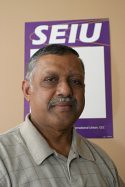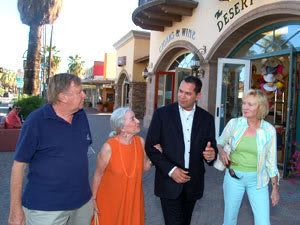The California Nurses’ Association called today about the Yamada campaign, and it piqued my interest enough to check out Mariko Yamada and Christopher Cabaldon’s respective endorsement lists. While doing that, one noteworthy pair of endorsements for Yamada came from the California Nurses Association and SEIU United Healthcare Workers West, two unions who have not only been aggressive in pushing for a single payer health care plan for California, but who also stood up against Schwarzeneggar and the 2005 special election boondoggle back when the CA Democratic party was content to sit back and let Arnold run the state unimpeded.
On the issue of health care reform, the candidates are close but not identical. In a recent debate, Yamada backed Sheila Kuhl’s single payer health insurance plan pretty strongly, while Cabaldon gave it lip service, but like the CA Democratic leadership in last year’s health insurance negotiations, also left himself open to a compromise that fell short of single payer. As the Davis Vanguard reported at the time: [emphasis mine]
For Christopher Cabaldon he suggested that everyone is paying for the uninsured, even when we do not see it. He favors the Sheila Kuehl single payer health system as the ideal. However, he then argued that we must do something even it is not a single payer system. We cannot allow the perfect to be the enemy of the possible. Finally he argued that cuts in Medi-Cal are taking us in the wrong direction and it will make it impossible to find Medi-Cal providers who cover the disadvantaged. Mariko Yamada was also supportive of the Kuehl Bill and argued that if her supporter, Phil Angelides had been elected Governor, we would have it as law now. She is also willing to consider others but not as enthusiastically. Talked about the fact that social workers have supported single payer health system going back 50 years, back then, she quipped they were called Communists but now normal people also support such a system.
While Cabaldon has his fair share of union endorsements, the presence of that 2005 special election coalition of SEIU-UHWW, CNA, firefighters, police and teachers’ unions on Yamada’s endorsement list suggests that those unions don’t trust Cabaldon, even though he’s the front runner and as such would be easy enough to endorse. It’s not a matter of liberal versus conservative – both candidates are fairly liberal Democrats, well in the mainstream for the blue 8th AD – but it suggests that the battle over the shape of health care reform between establishment accommodationists and single payer advocates that scuttled the compromise last year is still simmering under the surface, and that CNA and SEIU-UHWW are doing some quiet primary work to try and actually get single payer passed as more than a symbolic bill, should the Democrats get a big enough majority in November to pass it over the governor’s veto.
Or maybe I’m just seeing things.
originally at surf putah

 I am a security officer with Inter-Con at the Kaiser Fremont Medical Center. I live in Fremont as well. I’ve worked here for about 1 year and 5 months.
I am a security officer with Inter-Con at the Kaiser Fremont Medical Center. I live in Fremont as well. I’ve worked here for about 1 year and 5 months.
 I’ve been with Inter-Con at Kaiser South Sacramento for a year. I’m constantly worried about getting sick. Working in a hospital, I’m exposed to illness and danger all the time. Without paid sick leave, Inter-con officers either have financial hardship if we take off of work, or are forced to work while sick. If I were to have to miss even one week I would be in danger of losing my apartment.
I’ve been with Inter-Con at Kaiser South Sacramento for a year. I’m constantly worried about getting sick. Working in a hospital, I’m exposed to illness and danger all the time. Without paid sick leave, Inter-con officers either have financial hardship if we take off of work, or are forced to work while sick. If I were to have to miss even one week I would be in danger of losing my apartment.



